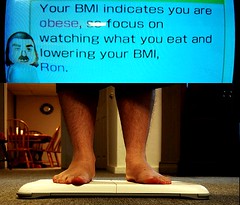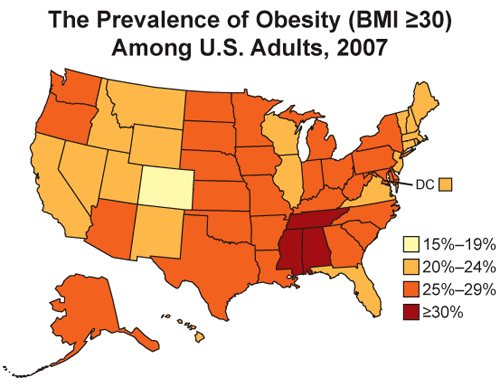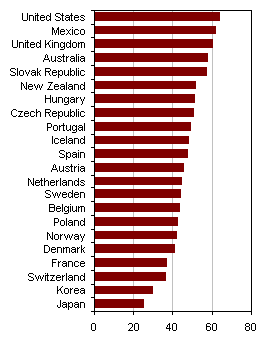The nation’s number one health problem deserves an environmental response

Posted July 22, 2008 at 4:59PM
 The CDC (Centers for Disease Control) has released its latest numbers on obesity and the prevalence of overweight people in the US. Once again, they aren’t pretty.
The CDC (Centers for Disease Control) has released its latest numbers on obesity and the prevalence of overweight people in the US. Once again, they aren’t pretty.
Publishing its findings for 2007 state-by-state, the CDC found that not a single state in the US met the national health goal of limiting obesity to 15 percent or less of the population. Instead, obesity prevalence ranged from 18.7% to 32.0%, with 30 states coming in at 25 percent or more. No state failed to register a majority of its population overweight or obese.
Here’s the map:
You can compare the new map to those from earlier years that I featured in my previous post on this subject, back in May. What I find astounding is that, as recently as 1990, not a single state registered an obesity rate greater than 14 percent. Wow.
The press played this as a rankings story (Mississippi fat, Colorado lean!), but for me the real story is that, as a nation, a shocking 63 percent of our population is either overweight or obese. This makes us the fattest country in the world.
Look at the graph compiled from 2004 OECD health statistics by Choices magazine. It shows the portion of the population considered overweight (including those considered obese) in each country:
I’ve already been through the serious health and economic problems this poses. What nags at me is that there is almost no response by the mainstream environmental community. We don’t hesitate to go after nutritional issues when our food supply is affected by pollutants or unsustainable harvesting practices. We don’t hesitate to attack the environmental factors that increase the risk of cancer or lung disease.
But we’ve been mostly silent on looking into the environmental factors that contribute to overweight and obesity, and thus to heart attacks and stroke.  My own theory is that the public health wing of the mainstream environmental community is led mostly by extremely talented toxicity scientists, who do outstanding work but simply possess a different kind of expertise and professional interest from that needed to address environmental contributors to human behavior.
My own theory is that the public health wing of the mainstream environmental community is led mostly by extremely talented toxicity scientists, who do outstanding work but simply possess a different kind of expertise and professional interest from that needed to address environmental contributors to human behavior.
With regard to these issues, sprawl and a lack of exercise in our automobile-oriented culture have proven associations with obesity and overweight sectors of the population. Our built environment needs to be reformed to promote healthier lifestyles.
NRDC and a few other environmental groups certainly do look for solutions to sprawl and automobile dependence. But we seldom do it through public health analysis or alongside our public health wing. Our programs would be strengthened and our arguments would carry more weight (heh) if we did.

